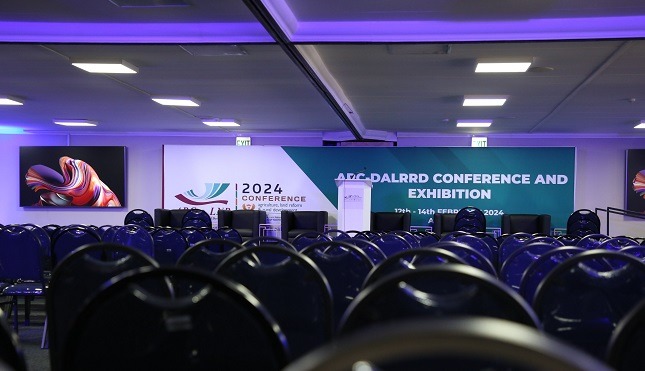The lack of investment in agricultural research and sciences has emerged as a significant concern among agriculturists, highlighted during the ARC-DALRRD conference themed “Science Transforming Food Systems For a Better Future.”
South African farmers have recently grappled with various animal diseases, including avian flu, which significantly impacted the poultry industry, leading to increased prices for chicken and eggs due to low supply and high demand.
Climate change has been identified as a key factor contributing to the surge in animal diseases, such as foot and mouth and avian flu.
The Department of Agriculture, Land Reform and Rural Development’s Chief Director, Dipeneneng Serage, assured that the department is actively working to ensure an adequate vaccine supply for potential future outbreaks.
Serage stated that the department invested over R100 million in the current financial year at the Agriculture Research Centre (ARC) to ensure that it carried out its work to ensure that the country is ready for any future outbreaks.
Department of Agriculture says it has managed to contain the spread of the avian flu:
Agriculture Minister Thoko Didiza emphasised the need to transform food systems in response to challenges like climate change.
Didiza said: “The conference comes at a time when our food systems both nationally and internationally, is confronted by externalities ranging from climate change, global conflicts, food waste, and the constant protection of new pests and diseases. These realities are threatening how we have been producing, how we’ve been storing and how we’ve been distributing our? As a result, they installed potentials around the world, including in Africa, that we need to transform our food systems to deliver the human rights to food in an environmentally sustainable, cost-effective and socially just manner.”
CEO of the ARC Dr. Litha Magingxa says that climate change has devastating impacts on agriculture, affecting crop cultivation, animal production cycles, and disease dynamics.
“In our space, because it affects how you grow your crops, what sort of cultivars, you have to think about. It affects the animals and the production cycles. A very interesting thing is that it also affects the types of diseases. That you have to deal with because suddenly some of the carriers of diseases, you know, their life cycles are being altered,” says Magingxa.
Serage attributed disease outbreaks to the reckless movement of animals by farmers and outlined measures to restrict farmers during outbreaks, including the implementation of cameras in major farming areas and routes to monitor cattle movement.
The conference, taking place in Pretoria until tomorrow, continues to address critical issues related to agriculture, research and the challenges faced by the sector.
HIGHLIGHTS | ARC President and CEO Dr Litha Magingxa accompanied by ARC and DALRRD members of the executive cut a ribbon to mark the opening of the exhibition center.#ARCDALRRD2024 pic.twitter.com/PnnjSwnJsX
— ARC South Africa 🇿🇦 (@ARCSouthAfrica) February 12, 2024
HAPPENING NOW | The ARC DALRRD CONFERENCE is currently underway. Agricultural Research Council CEO and President Dr Litha Magingxa is ready to welcome conference delegates, presenters and exhibitors.
Be part of this exciting conference! pic.twitter.com/5N8OHwRpzq— ARC South Africa 🇿🇦 (@ARCSouthAfrica) February 12, 2024
It’s show time! We are ready to welcome all our delegates, presenters and exhibitors to the inaugural ARC-DALRRD Conference and Exhibition 2024.
Catch all the action live on the Agricultural Research Council and @DALRRDgov_ZA social media platforms.#arcdalrrd2024 pic.twitter.com/UakRk5AO69— ARC South Africa 🇿🇦 (@ARCSouthAfrica) February 11, 2024






